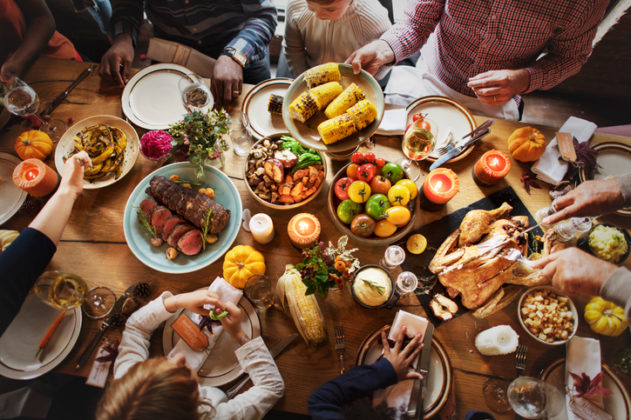Anything with smiling Indians and bright feathers will be critiqued, explained, and unceremoniously thrown in the trash.
Every year in the weeks before Thanksgiving, at least one person, often multiple people, cautiously ask me if Native Americans celebrate Thanksgiving. At the grocery store, I’ve seen the worried looks of check-out clerks, moments after they’ve automatically wished me a Happy Thanksgiving, concerned they’ve offended me.
Do Native Americans celebrate Thanksgiving? The answer isn’t an easy one.
As a visibly identifiable Native American woman, from the Tohono O’odham Nation, I field these questions quite often. But the idea that I can represent all 500 distinct tribal nations in the U.S. is absurd. Although I believe all Indigenous communities are connected in many ways, I cannot speak on behalf of all Indigenous people everywhere. But I can share a little of what I know and believe.
Many Native Americans choose not to observe this day, because they see it as a celebration of colonization and the beginning of the systemic genocide of Indigenous people. I do have Indigenous friends who choose not to observe the holiday. Instead, some find a way to honor their culture or communities in a way that is meaningful to them. Others simply do nothing.
However, in the O’odham community, where I am from, Thanksgiving is an important day centered around the idea of community, friendship, and the sharing of food.
So, yes, my family celebrates Thanksgiving. We eat the same things you do: turkey, mashed potatoes, and pies. We rely on old family recipes for the bulk of our meal, but sometimes we try out a fancy new side dish inspired by The Cooking Channel. We might also have standard O’odham dishes. Many O’odham families will cook pinto beans, tepary beans, red chili, cholla buds, yeast bread, frybread and tortillas. In fact, to not serve some of these items would be as odd as going to a Thanksgiving meal without mashed potatoes.
Much of the day at my house is probably the same as yours: We watch the Macy’s Thanksgiving Day Parade and football games and we eat way too much food. Our house is filled with noise and delicious scents and lots of laughter.
But in my house, the Native American artwork isn’t just decorations I put up to celebrate this one holiday. The traditional O’odham baskets and paintings by Native artists hang year round in my home and honor my culture every day.
Sometimes, our children bring home hand-made decorations sent by enthusiastic elementary school teachers who don’t know about the real Thanksgiving. Anything with smiling Indians and bright feathers will be critiqued, explained, and unceremoniously thrown in the trash.
Each year we go around the table and talk about what we’re thankful for. My family gets deeply personal with our declarations of thankfulness and tears are often shed. Last year, multiple family members expressed our thankfulness for the Water Protectors at Standing Rock, in South Dakota, who sacrificed their time away from their families to fight for the right for clean water. We prayed for the missing and murdered Indigenous women who rarely make the news. We expressed our thankfulness for everyday things—my sister, thankful for the job she’s had for 22 years; my nephew thankful to buy his first home; my daughter, thankful for internet memes.
Every year, in my household, when it’s my turn to say what I’m thankful for, I first acknowledge the Wampanoag Tribe. They were the first to encounter the pilgrims in 1621, but were not granted federal recognition as an official Native American Tribe until 2007, an insulting 386 years after the arrival of the Mayflower.
I have many things to be thankful, but this year, like most, I will say that I’m thankful for the fierce love and support of my close family and friends. I’m thankful for the humor that keeps us laughing during times of darkness. And above all, I’m thankful for the strength and resilience of my people, who continue to fight for basic human rights and equality every day of our lives, simply by existing.
Gabriella Cazares-Kelly is an educator, community organizer and Public Voices fellow for the OpEd Project. She is a member of the Tohono O’odham Nation of Arizona.
Other Links:

